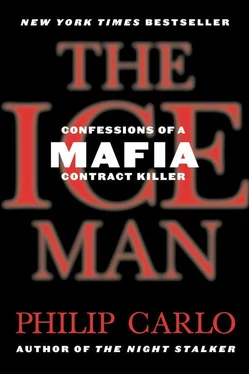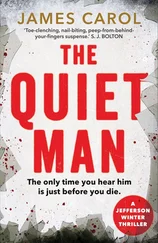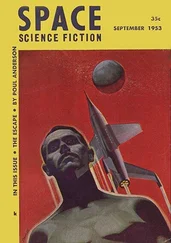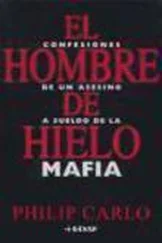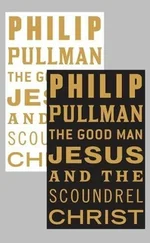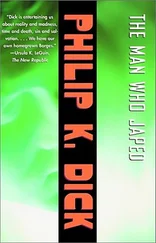A storm from the south came tearing into Miami. The sky abruptly darkened, became the deep gray color of gunpowder. Strong winds bent palm trees, made them seem as if they were dancing to Latin music. Lightning bolts tore the darkening sky apart at will. Thunder trembled the air. Since she’d been a little girl, Barbara had never liked storms. They seemed to be harbingers of bad things to come.
Barbara was sitting in the screened-in porch of her father’s house, watching the storm, the lightning bolts, how the wind abused the palm trees, when she saw out of the corner of her eye a taxi come to a slow stop in front of the house; a lone man, a large man, got out of the cab. He carried one piece of luggage. He began to walk up the path to the house. Barbara suddenly realized, as if she’d been struck by a thunderbolt, that it was Richard. She wanted to get up and run, but where could she go? Where could she run? He walked up to the screen door and knocked. Barbara went to the door, not pleased, actually scowling.
“I found you,” he said.
“Yes, I see that.”
“Why’d you run away?”
“Why do you think I ran away?”
“You look so beautiful. You’ve changed. Guess it’s true.”
“What’s that?”
“That women become more beautiful when they’re pregnant.”
“So you say?”
“Can I come in?”
“I’d rather you didn’t if you want to know the truth.”
They stared at each other through the screen. It began to rain. He just stood there in the rain getting wet.
“I got divorced,” he said, taking out the divorce papers so she could see. “See, they’re signed by a judge.” The papers were getting wet.
“I’m shocked…. I didn’t think you would.”
“I said I would and I did. I love you, Barbara. I love you so much it hurts,” he told her. And thus Richard insinuated his way back into Barbara’s life, a storm-filled purple sky and lightning bolts behind him, as if nature were trying to send Barbara a message.
When Barbara found out that her mother had paid for Richard’s divorce and told him where Barbara was, she called her mother and berated her nonstop for fifteen minutes. Genevieve’s answer was, “I don’t want you to have a child without a husband. How would that look? It’s not right. It’s not… natural.”
“I don’t care how it’ll look! You had no right telling him I’m here. No right—no right!” Barbara hung up on her mother.
Young and inexperienced and particularly vulnerable now with this sudden unwanted pregnancy, Barbara was soon convinced that Richard would change, that his love for her would make everything good and right, and they would be happy.
Al Pedrici readily accepted Richard. He could see that Richard was nuts about his daughter and resolved not to do anything to get in their way. He figured things would work themselves out, that Barbara—whose pregnancy was more evident every day—was certainly better off with a husband than without. Al had no idea about Richard’s violence toward Barbara, his homicidal threats, how calm and cold he was when he made them, or that he was always armed. Even now, she was sure, he had a gun with him.
Barbara and Richard went for long walks and talked. Barbara, aware now that Richard had drinking and gambling problems, made him swear off those vices, which he readily did. Al managed to get Richard a job driving a delivery truck, and he dutifully went to work every day, not complaining, toeing the line, intent upon proving that he would be a good provider. A good husband. A better man. He resolved also to stay away from crime. Killing people. The Mafia. Days quickly melted into weeks then into months. Florida’s summer arrived with even more thick, stuffy humidity, as well as more giant mosquitoes. As Barbara’s stomach grew, the heat and humidity bothered her more and more. Richard kept insisting that they get married, Barbara finally agreed, and as the summer grew to a close, Barbara and Richard were married by a justice of the peace at Miami’s city hall. Al and his wife attended. That night they went out for a nice dinner in a fish restaurant. Toasts were made. There was no honeymoon, no money for that, and suddenly Barbara Pedrici became Barbara Kuklinski.
That was, she recently confided, the worst day of my life. Now that I think of it I should have thrown myself in the ocean and drowned rather than marry Richard. But I did, and the die was cast.
When, one evening after dinner, Richard saw his new wife smoking a cigarette, he became disproportionately angry: he ripped the cigarette from her hand and stomped on it.
“I’ll smoke if I want to,” Barbara said, annoyed.
Richard’s answer was to step on her right foot with all his weight—and turn it, fracturing her large toe.
“Are you crazy!” she asked, grimacing with pain. “What’s wrong with you?”
“You aren’t smoking,” he said. “You will do what I say!” And that night Richard would not allow Barbara to even come to bed. He made her sit on a gray metal stool on the screened-in patio the whole night.
“You move, I’ll kill your father in front of you,” he said, dead serious, and left Barbara there like that.
Convinced that Richard would truly kill her dad, Barbara sat on that hard metal stool the whole friggin’ night, as she put it. The temperature dropped suddenly, as it always did, and she was so cold she began shivering. Certainly Barbara should have hurried to the police, told them what Richard had done, what he was making her do; but she was so frightened for her father that she sat there shivering and freezing all night long, silently cursing heaven and hell, and her mother for telling Richard where she was.
Barbara lost the baby the next day. She was sure what Richard had made her do was the reason. Whatever affection Barbara once had for Richard was inexorably being replaced by another emotion entirely—and that emotion was hate.
20. Love and Marriage and a Baby Carriage
October 15, 1962, Barbara and Richard Kuklinski returned to New Jersey. It was a bitterly cold night. Uncle Armond met them at the airport, all smiles, hugs, and kisses. Barbara was overjoyed to see her uncle and be back home. When Barbara saw Nana Carmella they both cried, they were so happy, and hugged each other for the longest time. Now that Barbara and Richard were married, the family readily accepted him, for better or for worse. Richard’s dream of making Barbara’s family his family came true. That’s what he’d wanted, and that’s what he’d gotten. Seeing that the newlyweds had little money and nowhere to live, Genevieve graciously invited them to stay with her and Nana until they “got on their feet.” Richard was quite serious about his marriage with Barbara working. He swore off drinking hard liquor and gambling, and he stuck to his word… for the most part. Barbara still had no true idea about Richard’s involvement in crime, in murder, and Richard knew that if he was serious about the marriage and having a family with Barbara, he had to give up all that. He had to go straight. Become a working stiff, a civilian, he says.
Because he had no education and no skills as such, Richard’s opportunities for employment were inherently limited. Barbara’s uncle Tony, however, managed to get him a job at the 20th Century Deluxe Film Lab off Eighth Avenue in Manhattan. Richard didn’t like having to go to the city every day, but he dutifully took the bus, carrying his lunch, prepared by Barbara, in a brown paper bag. The job consisted of lugging and shelving boxes and large reels of film, getting things for people, cleaning up discarded pieces of film. He was beginning at the bottom of the totem pole. The 20th Century Deluxe Film Lab made prints from masters to be distributed to movie theaters across the country. Richard, being a quick study, always looking for angles, wanting to move up within the company, began to watch carefully how the printers made copies on the machines. There was a carrot redheaded printer named Tommy Thomas, who patiently showed Richard how to make prints, step by step. After a few months Richard did, in fact, begin working as a printer. He received a raise and was making ninety dollars a week. He had grown to like the job; and it didn’t take long for Richard to find a way to make some extra cash; by bootlegging masters and selling them on the black market. The lab printed all of the Disney Company’s masters on the East Coast, and Richard began running pirated prints of Cinderella, Bambi, and Pinocchio, for which there was a ready market. It was now already the spring and Richard made pirating Disney cartoons a business.
Читать дальше
